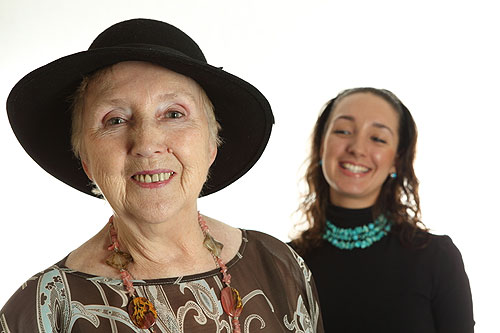Hot flushes are the most common menopause and perimenopause symptoms. Hot flushes occur in more than two-thirds of women during perimenopause and almost all women with induced or premature menopause.

What Are Hot Flushes?
A hot flush is an instant feeling of warmth, which may be accompanied by redness, blood rush to the face and sweating. The exact cause of the flush is unknown, but it may be related to blood circulation changes. Hot flushes occur when the blood vessels near the skin’s surface dilate to cool. This leads to redness and heat. A woman may also perspire to cool the body. In addition, some women experience rapid heartbeat and chills.
How Long Will I Suffer from Menopause Hot Flushes?
The severity and duration of hot flushes varies among women in menopause. Some women experience hot flushes for a very short time during menopause. Other women may have flushes for their whole life.
How to Prevent Hot Flushes during Menopause?
It is not possible to completely avoid hot flushes during menopause, but there are certain triggers that can cause it. To prevent hot flushes, you need to avoid these triggers:
- Stress
- Caffeine
- Alcohol
- Spicy foods
- Tight clothing
- Heat
- Cigarette smoke
Physiological Causes of Hot Flushes
Flushes are mainly caused by hormonal changes during menopause, but it can also depend on the lifestyle and medicines. The decrease in estrogen levels has a direct effect on the hypothalamus, a part of the brain responsible for controlling appetite, sleep, cycles, sex hormones and body temperature. Somehow, the drop in estrogen levels disrupts the work of the hypothalamus – sometimes called the “body thermostat” – and send it a signal: “too hot.” The brain responds and sends a signal to the heart, blood vessels, and the nervous system, “Get rid of the heat!” The message is transmitted to nervous system chemicals – adrenaline and related compounds: norepinephrine, prostaglandin and serotonin.
The heart begins to pump faster, the blood vessels in the skin dilate to get rid of the heat, and sweat glands start to work harder to cool down. This is a heat-generating mechanism by which the body protects itself from overheating in the summer. But when the process is started instead of reducing estrogen levels, the response of the brain can bring significant inconvenience. The body cools down when it should not, and you get wet in the middle of a board meeting or in the middle of the night. You should always start with the least aggressive approach to the treatment of these symptoms.










